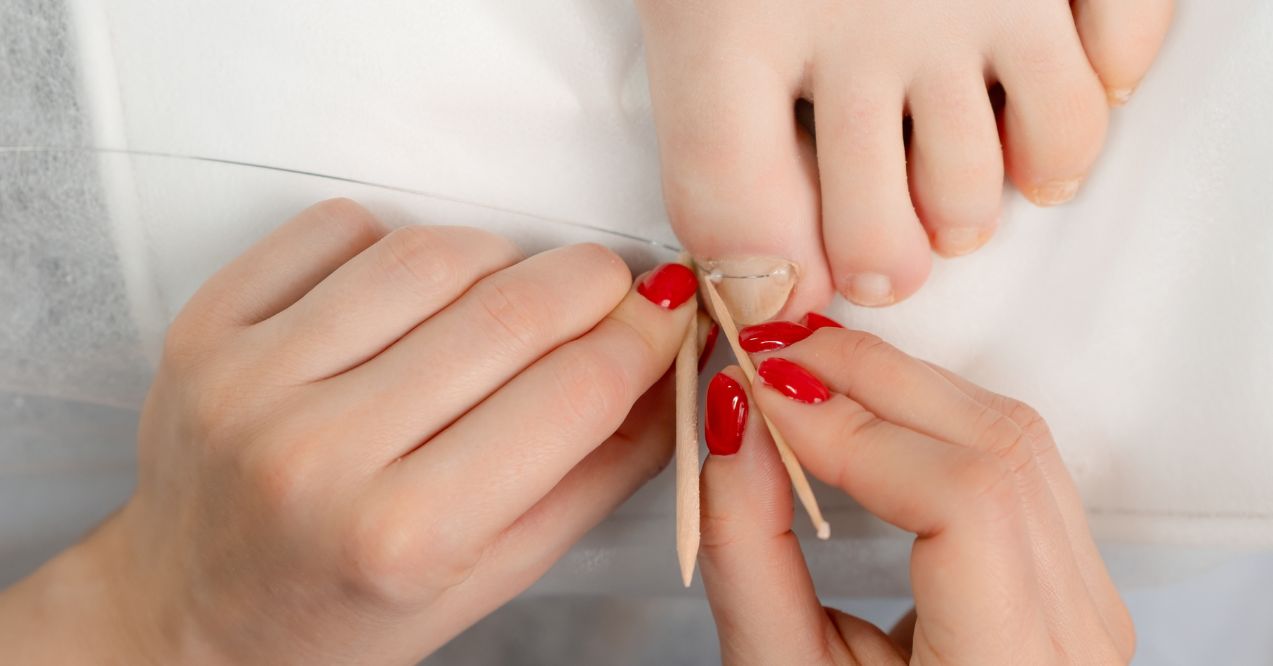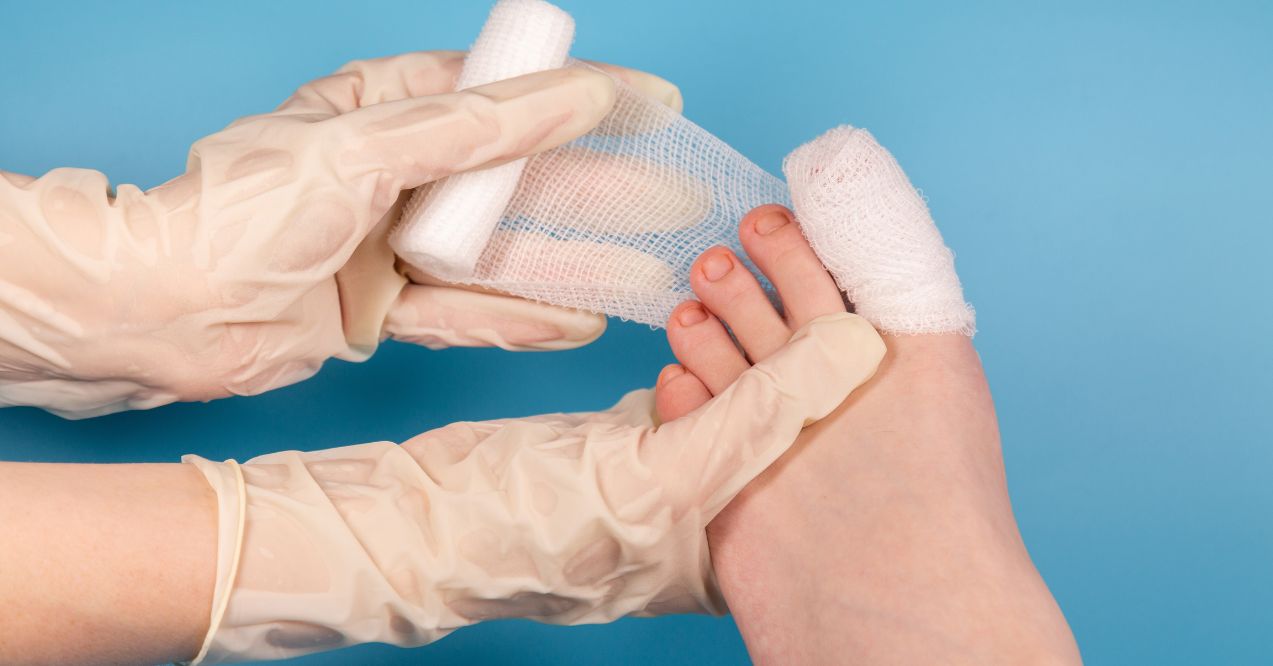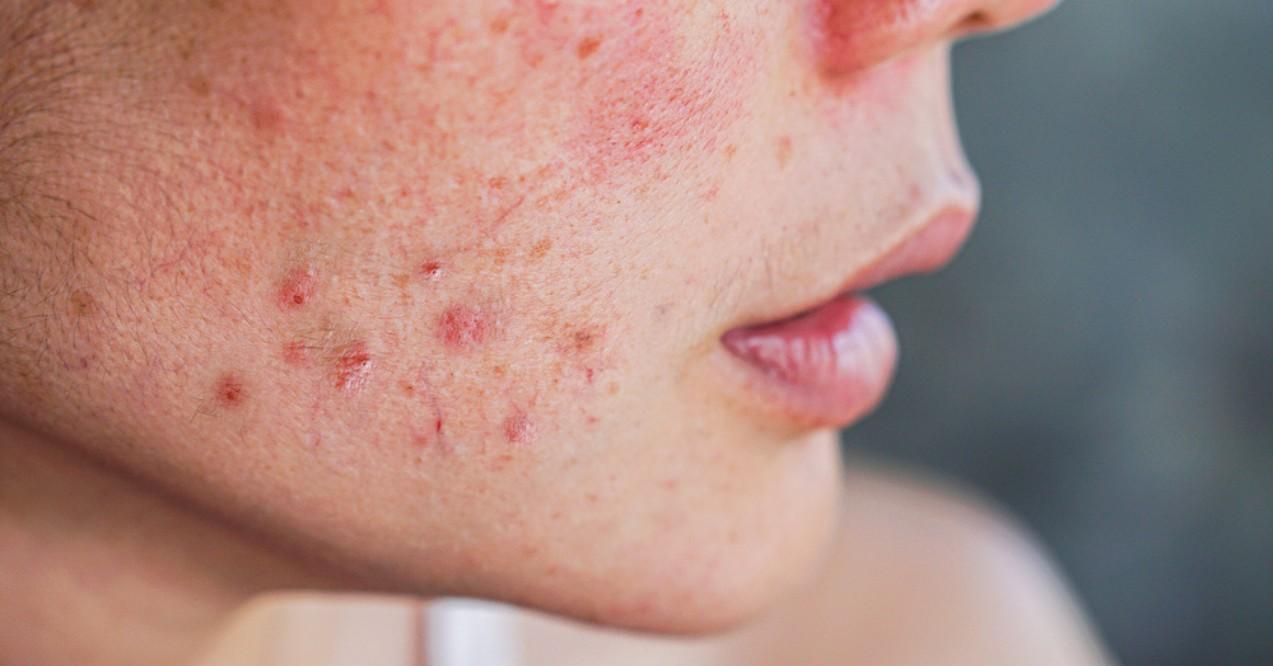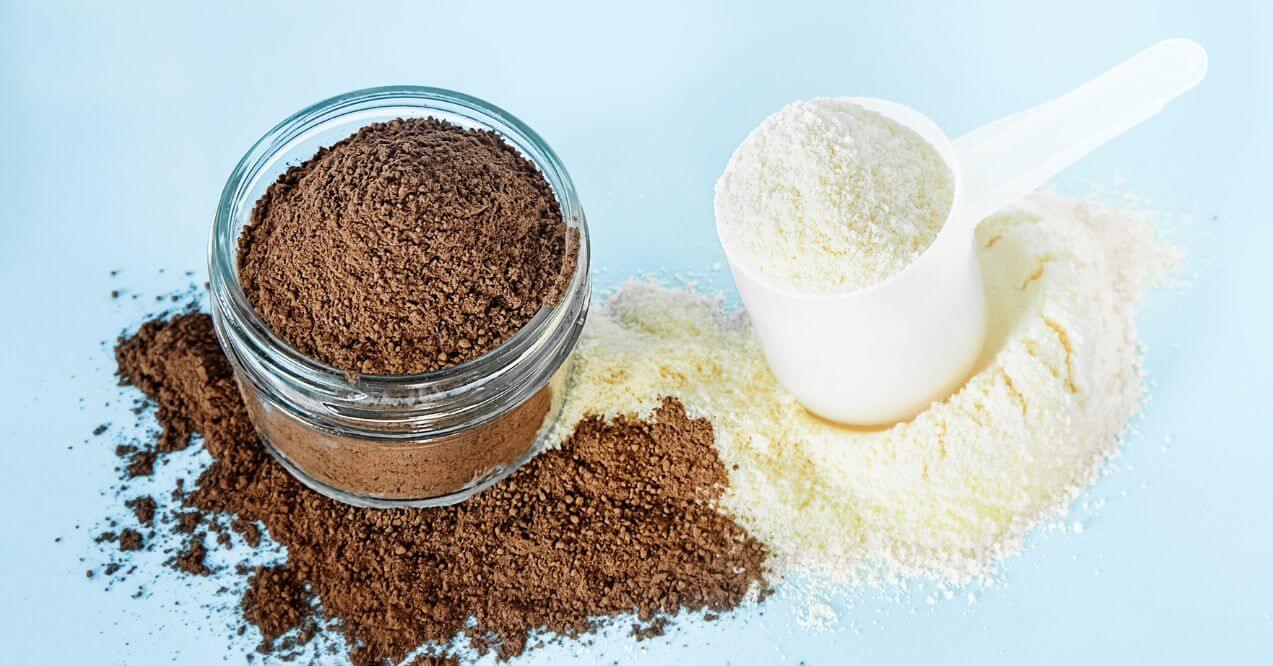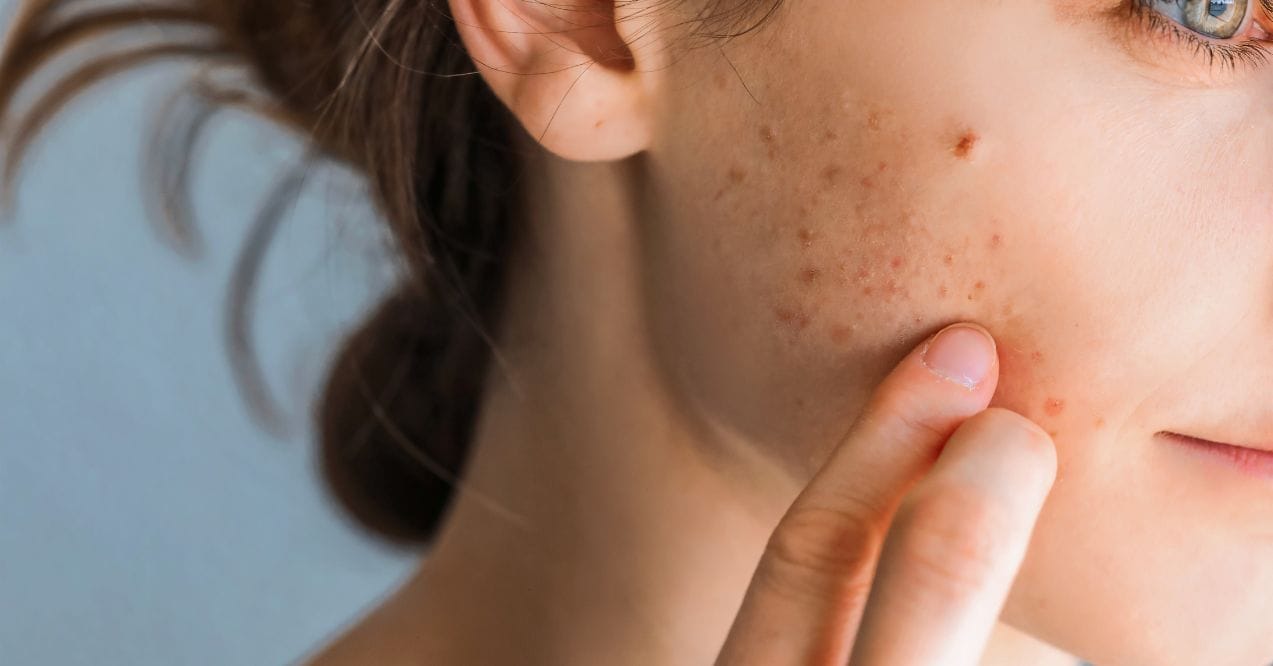Does Peanut Butter Cause Acne? Myth or Fact?
Does peanut butter cause acne? Get the facts and empower your skincare routine now!
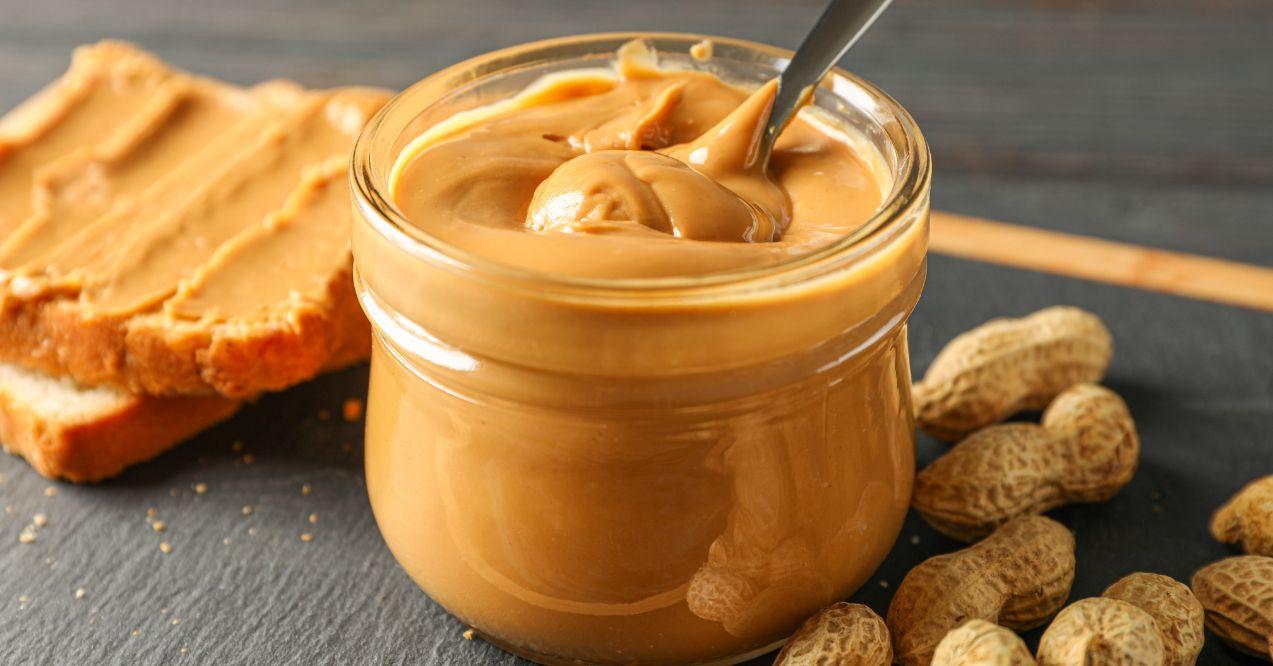

Does peanut butter cause acne? This question might seem surprising to those who consider peanut butter nothing more than a delicious and versatile spread. Yet, beyond its rich, creamy texture, peanut butter holds a number of potential benefits for skin health.
Interestingly, this household staple can play a dual role in our skincare routine – not only as a nutritious addition to our diet but also as a component of topical treatments that promise various skin benefits. As we delve deeper into the world of peanut butter, we uncover its complex relationship with our skin.
This blog post aims to explore the myth surrounding peanut butter and acne, shed light on its nutritional content, and reveal how it might actually contribute to healthier skin. By examining scientific evidence and nutritional facts, we will unravel whether peanut butter is a friend or foe to our skin’s well-being.
What Does Peanut Butter Contain?
Peanut butter is packed with a variety of nutrients that can potentially contribute to overall health, including the health of our skin. Understanding the nutritional content of peanut butter is key to understanding its relationship with skin health. Here’s a breakdown of the primary nutrients found in peanut butter:
- Vitamin E – An antioxidant that helps protect the skin from oxidative stress and damage from UV radiation and environmental pollutants.
- Vitamin B – Includes various types such as niacin (B3), which can help improve skin’s texture and complexion.
- Healthy fats – Primarily monounsaturated and polyunsaturated fats, which are essential for maintaining the skin’s moisture barrier, reducing dryness, and keeping skin supple.
- Protein – Essential for the repair and regeneration of skin cells, contributing to the skin’s resilience and firmness.
- Zinc – Known for its anti-inflammatory properties and ability to reduce acne breakouts and promote skin healing.
- Magnesium – Plays a role in supporting skin health, including managing allergic reactions and other skin conditions.
These components, especially the antioxidants and healthy fats, are crucial for nourishing the skin from the inside out, potentially enhancing skin texture and reducing the signs of aging.
Does Peanut Butter Actually Cause Acne?
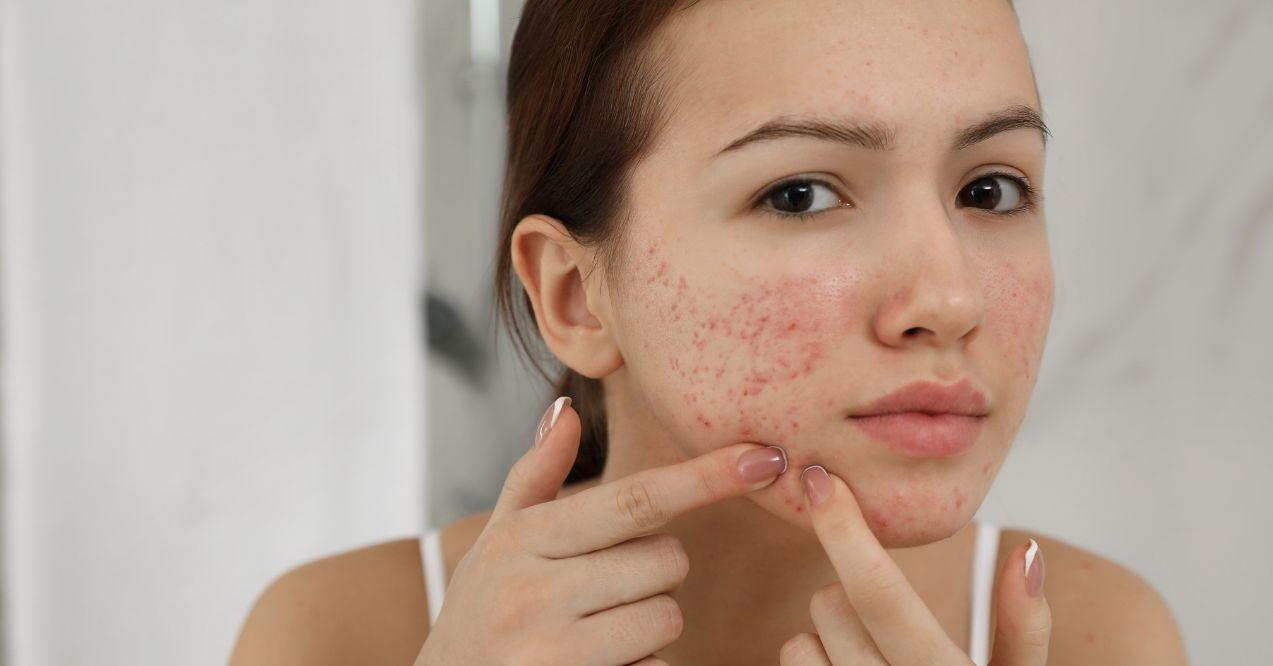
Does peanut butter cause acne? The short answer is no – not directly. The relationship between peanut butter and acne has been a topic of much debate and speculation. To clarify the connection and dispel common misconceptions, let’s examine the evidence in detail:
- Nutritional Composition – Peanut butter is rich in healthy fats, protein, and various vitamins and minerals, which contribute to its nutritional profile. It’s important to understand that acne is not caused by foods directly but can be influenced by an individual’s reaction to certain dietary components. The presence of vitamins such as E and B complex within peanut butter can actually support skin health, aiding in repair and protection against environmental damage.
- Concerns About Additives – Many commercially available peanut butters contain additives such as sugars, hydrogenated fats, and excessive salt, which can potentially worsen acne. These ingredients can lead to inflammation and hormonal imbalances in susceptible individuals, indirectly contributing to acne flare-ups. It’s the inflammatory response to these additives, rather than the peanut butter itself, that might trigger or exacerbate skin issues.
- Excessive Consumption – Consuming peanut butter in large quantities, especially the varieties high in added sugars and unhealthy fats, can lead to an imbalance in one’s diet, potentially exacerbating acne in people with sensitive skin or hormonal imbalances. A balanced intake, focusing on natural or minimal ingredient peanut butters, can mitigate this risk.
Beyond the discussions surrounding peanut butter, there exists a broader spectrum of dietary components that can potentially impact on acne. Below are some of the more common questions people ask:
- Does ashwagandha cause acne? Ashwagandha is an adaptogen known for its stress-reducing properties. There’s no evidence to suggest that ashwagandha directly causes acne. In fact, by managing stress levels, it may indirectly help control acne breakouts, as stress can exacerbate acne.
- Can collagen cause acne? Collagen supplements are popular for their potential skin health benefits. There is no scientific backing for the claim that collagen causes acne. On the contrary, collagen may support skin healing and reduce the appearance of scars, including those from acne.
- Does creatine cause acne? Creatine is a common supplement among athletes for enhancing performance. While some anecdotal evidence suggests a potential link between creatine use and acne, due to hormonal fluctuations that can affect the skin’s oil production, more research is needed to establish a direct connection.
In conclusion, while peanut butter itself does not directly cause acne, individual reactions, along with the presence of additives and excessive consumption, can influence skin health. It’s essential to consider the broader dietary and lifestyle context when addressing acne concerns.
Are There Any Benefits of Peanut Butter for Skin?
While some worry about whether can peanut butter make you break out, it’s essential to shed light on the numerous benefits of peanut butter for skin health. Rich in nutrients, peanut butter can be a valuable addition to your diet, offering more than just a tasty snack. Its components have been found to support skin health in various ways, from reducing inflammation to protecting against the sun. Let’s explore these benefits more closely.
May Reduce Inflammation
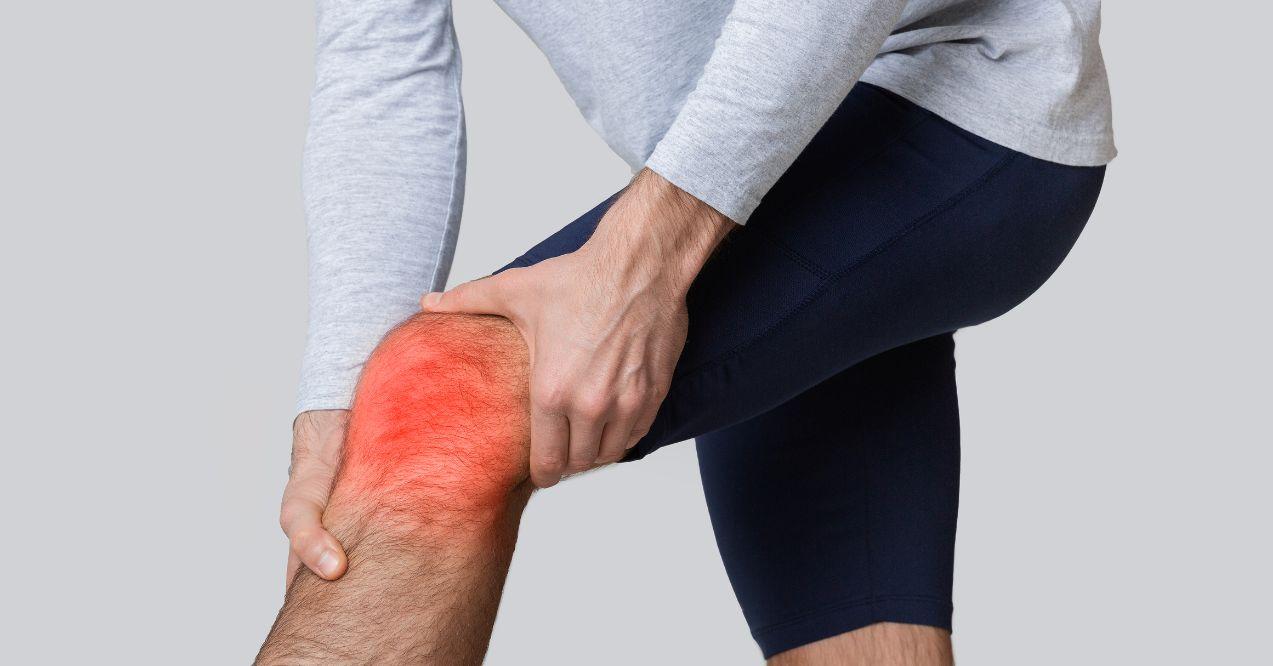
Peanut butter’s anti-inflammatory properties are significant for those seeking to soothe skin conditions such as acne and eczema. One of the key components contributing to this benefit is resveratrol, a compound well-regarded for its anti-inflammatory effects.
By incorporating peanut butter into your diet, you might leverage these properties to help calm skin flare-ups and reduce redness and swelling. The anti-inflammatory effects of peanut butter can be attributed to more than just resveratrol; the monounsaturated fats it contains also play a role in reducing inflammation throughout the body, including the skin. This reduction in inflammation can lead to fewer acne breakouts and a soothing effect on conditions like eczema.
Rich In Vitamins
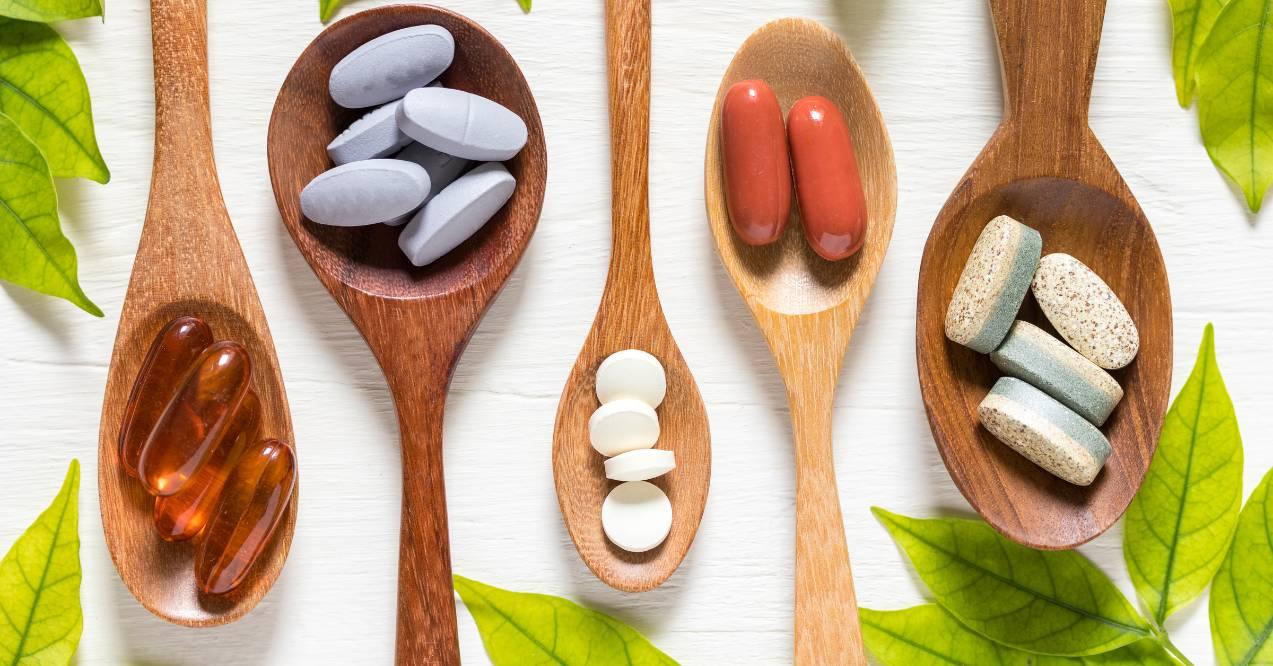
Peanut butter is a good source of vitamin E and B-complex vitamins. Vitamin E is known for its antioxidant properties, protecting the skin from oxidative damage caused by free radicals. This can help prevent premature aging and maintain skin health. Meanwhile, B vitamins play a crucial role in skin cell regeneration, contributing to the maintenance of healthy skin by ensuring new growth and repair processes function efficiently.
For those looking to further enhance their skin health, incorporating targeted supplements into your routine can provide an extra boost of essential nutrients. Click here to explore our supplements designed to support vibrant, healthy skin.
Protects from the Sun
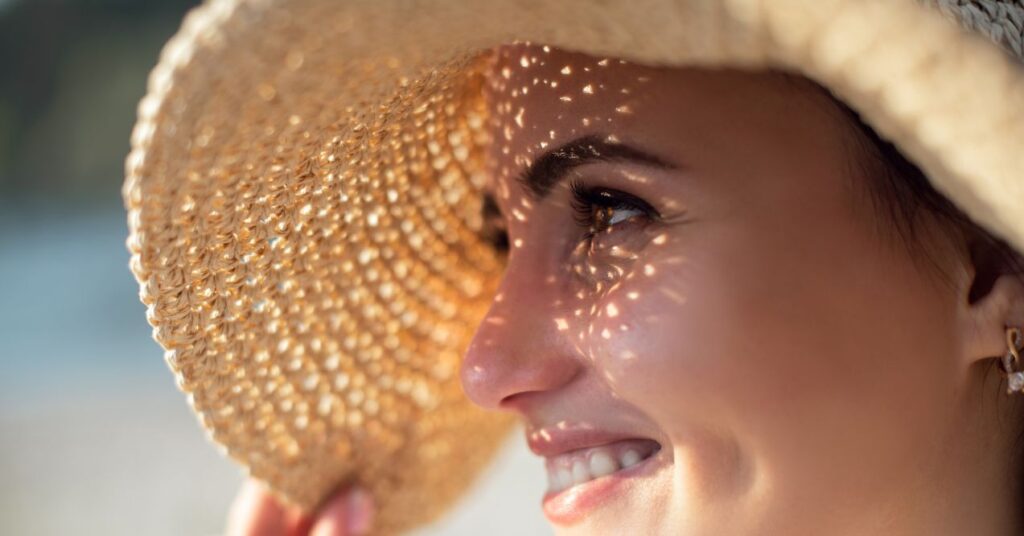
Protecting from the sun is another significant benefit of peanut butter for skin health. The presence of antioxidants like lutein in peanut butter contributes to its ability to offer some level of protection from UV radiation. These antioxidants can help shield the skin from harmful rays, reducing the risk of sunburn and premature aging.
Incorporating peanut butter into a balanced diet enhances the skin’s resilience against environmental stressors, including UV exposure. While not a replacement for topical sunscreen, the consumption of antioxidant-rich foods like peanut butter can bolster the skin’s internal defense mechanisms, aiding in the prevention of damage caused by sun exposure. This added layer of protection is especially beneficial for maintaining skin health and appearance over time.
Helps Boosting Levels of “Good” Cholesterol
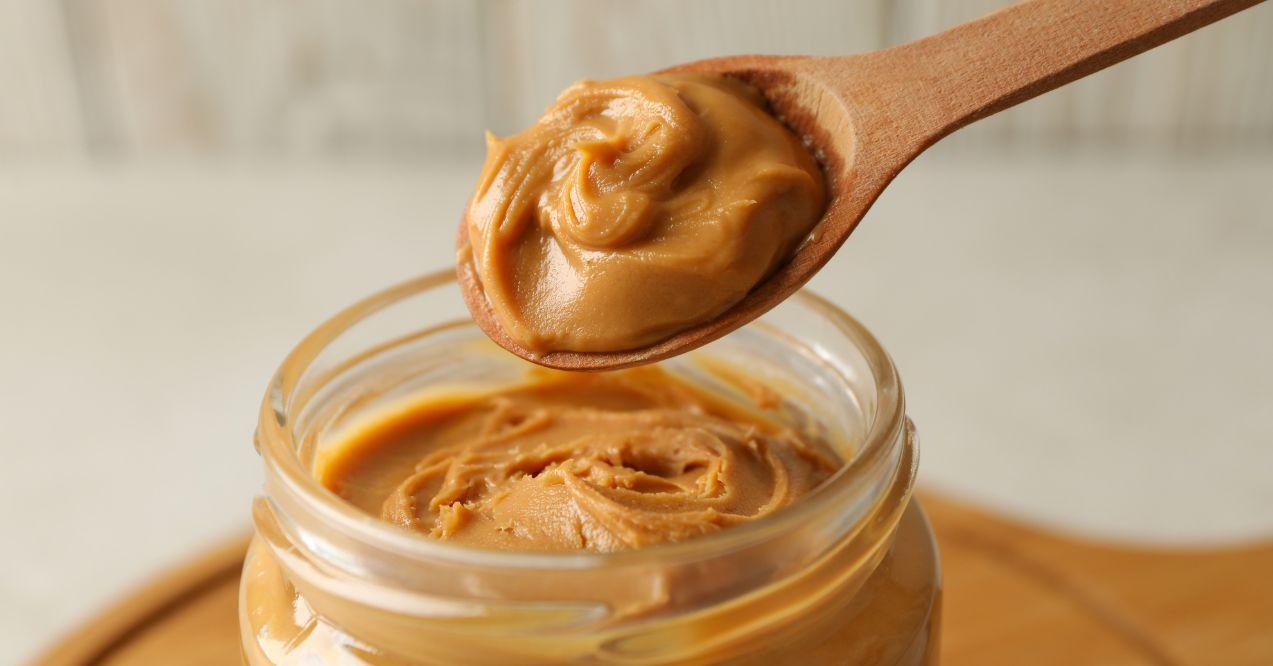
The role of peanut butter in boosting levels of “good” cholesterol is an often-overlooked benefit that indirectly impacts skin health by improving cardiovascular wellness. Consuming peanut butter can increase heart-friendly HDL cholesterol levels, essential for maintaining healthy blood vessels. This improvement in cardiovascular health ensures efficient delivery of nutrients and oxygen to the skin, which is crucial for its repair and regeneration processes.
A robust circulatory system supports the skin’s elasticity and vitality, contributing to a more youthful and radiant complexion. Additionally, the healthy fats in peanut butter can aid in maintaining the skin’s natural oil barrier, preventing dryness and promoting a balanced, hydrated skin surface. Through its cardiovascular benefits, peanut butter plays a pivotal role in nurturing skin health from the inside out, highlighting the interconnectedness of diet, heart health, and dermatological well-being.
So, is peanut butter good for your skin? In short, it’s clear that its benefits for skin health are substantial. From its anti-inflammatory effects to its rich vitamin content and ability to protect from the sun, peanut butter can be a worthy addition to your diet.
Ways to Prevent Acne
Preventing acne involves a comprehensive approach that combines proper skincare, dietary considerations, and lifestyle adjustments. Here are some effective strategies to minimize acne flare-ups and promote a clearer complexion.
Moisturize
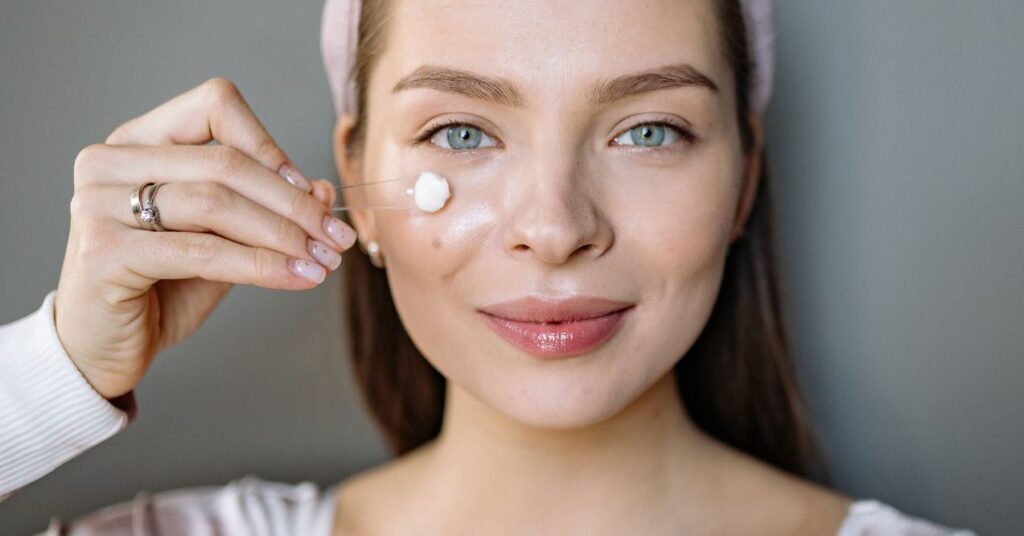
Regular moisturization is crucial for maintaining skin health and preventing acne. Using non-comedogenic products, which are specifically formulated to not block pores, can help maintain the skin’s moisture barrier without contributing to acne. Dry skin can lead to increased oil production, which can exacerbate acne conditions. By keeping the skin hydrated with suitable moisturizers, you can help balance oil production and minimize the risk of acne flare-ups.
Keep Your Face Clean
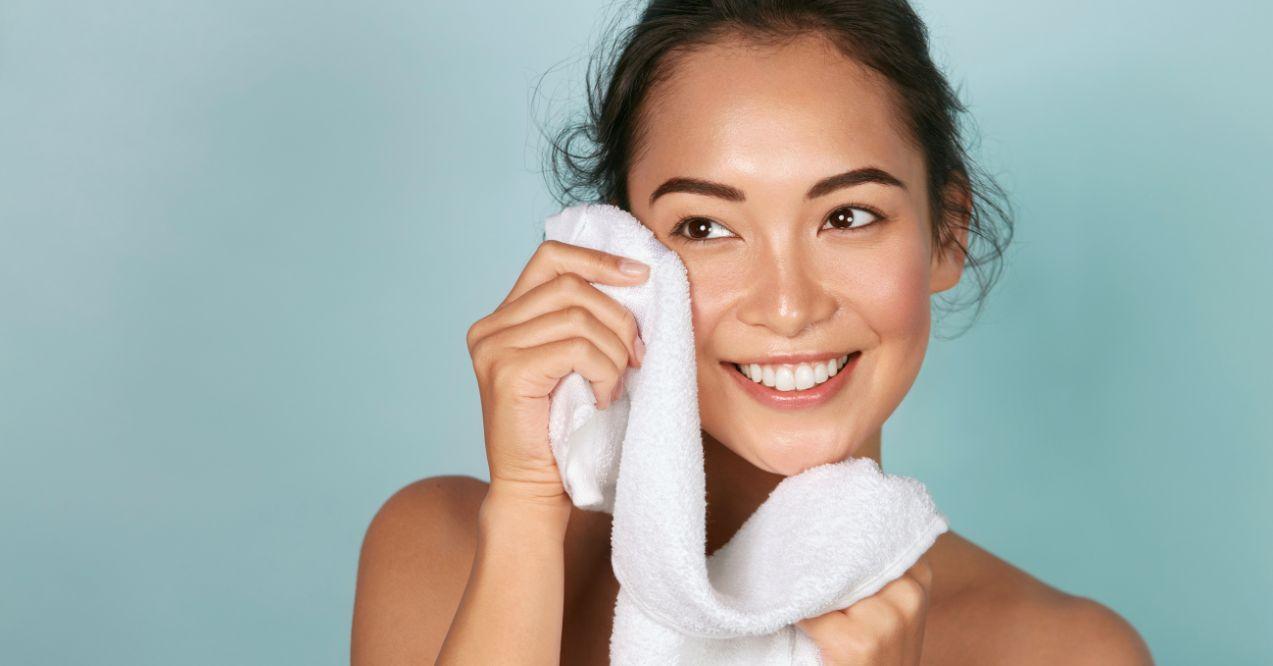
Maintaining a clean face is essential in the fight against acne. It’s recommended to wash your face twice daily with a gentle cleanser to remove excess oil, dirt, and impurities that can clog pores. However, it’s important not to overwash or use harsh products, as this can irritate the skin and worsen acne. For those who wear makeup or have particularly oily skin, a mild, non-abrasive cleanser in the morning and at night can help keep the skin clear and reduce the likelihood of pore blockages.
Avoid Comedogenic Make-up, Skincare, and Suncare Products
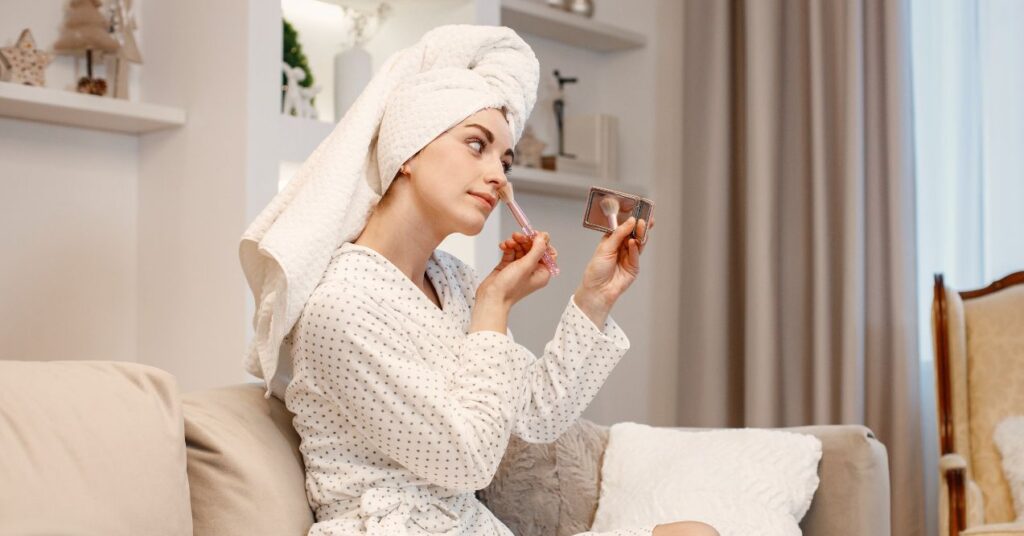
The types of products you use on your skin can have a significant impact on acne development. Some oil-based makeup, skincare, and suncare products can clog pores and trigger breakouts. Instead, opt for oil-free or non-comedogenic alternatives that provide the desired benefits without the risk of clogging pores. This recommendation extends to all products applied to the skin, from foundation and concealer to moisturizers and sunscreen. By choosing products labeled as “non-comedogenic,” you can significantly reduce the risk of acne caused by blocked pores.
Additionally, understanding the connection between gut health and acne is also vital, as a balanced diet and a healthy digestive system can significantly impact skin health. The gut microbiome plays a significant role in regulating inflammation throughout the body, including the skin. Imbalances in gut bacteria can lead to systemic inflammation, which may manifest as acne and other skin conditions.
Promoting a healthy gut environment through a balanced diet rich in fiber, probiotics, and prebiotics can potentially support skin health and reduce acne severity. Foods such as yogurt, kefir, sauerkraut, and kombucha can help replenish beneficial gut bacteria, while fiber-rich fruits, vegetables, and whole grains support digestive regularity.
Additionally, avoiding processed foods, excessive sugar, and artificial additives can help maintain gut integrity and reduce inflammation, potentially leading to fewer acne breakouts. Incorporating gut-supportive practices like staying hydrated, managing stress levels, and getting adequate sleep can further enhance overall well-being and contribute to clearer skin. By focusing on moisturization, cleanliness, and the careful selection of products, you create a solid foundation for maintaining clear, healthy skin. Remember, consistent practice and patience are key to seeing lasting results in your acne prevention efforts.
Key Takeaways
In conclusion, while concerns about peanut butter causing acne may arise, evidence suggests that it doesn’t directly trigger breakouts and can even offer skin benefits. Its anti-inflammatory properties, vitamins, and antioxidants contribute to healthier skin, and its nutritional profile supports overall well-being. By incorporating peanut butter into a balanced diet and maintaining a consistent skincare routine, individuals can enjoy the delicious taste of peanut butter while promoting optimal skin health.
Peanut butter doesn’t directly cause acne for everyone. However, for some individuals, ingredients like added sugars and fats in certain peanut butter brands can lead to inflammation and exacerbate acne, especially if consumed in large quantities.
If you have acne, you can still eat peanut butter, preferably in moderation and opting for natural or pure versions without added sugars or oils. Monitor your skin’s response, as individual reactions vary.
Like peanut butter, eating peanuts can potentially trigger acne in some individuals due to the same reasons—added oils and sugars in processed products, or specific sensitivities. Natural, unsalted peanuts are less likely to have this effect compared to more processed versions.
For some individuals, peanut butter can contribute to breakouts due to its fat content, added sugars, and potential to increase inflammation in those sensitive to peanuts. It’s not a universal trigger, but monitoring your intake and observing your skin’s reaction is advisable.
Peanut butter can be good for your skin due to its nutrient-rich profile, including vitamins E and B, which support skin health by protecting against oxidative damage and supporting cell regeneration.
Sign up for our Healthy Living newsletter!
Advertisement. This site offers health, wellness, fitness and nutritional information and is designed for educational purposes only. You should not rely on this information as a substitute for, nor does it replace, professional medical advice, diagnosis, or treatment. If you have any concerns or questions about your health, you should always consult with a physician or other health-care professional. Do not disregard, avoid or delay obtaining medical or health related advice from your health-care professional because of something you may have read on this site. The use of any information provided on this site is solely at your own risk.



